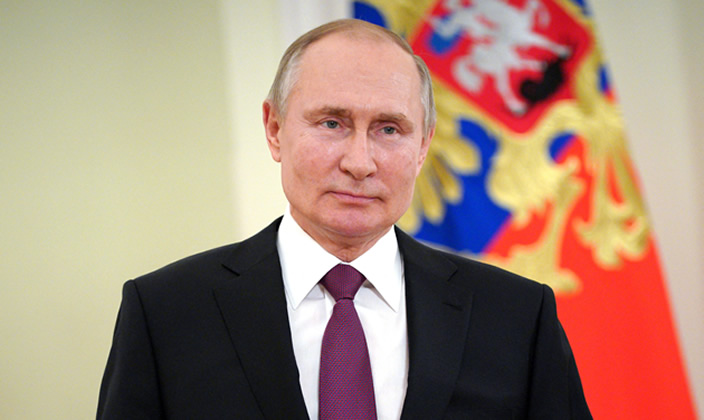
Moscow replaced its top logistics general on Saturday after a series of setbacks as Kremlin-held regions of eastern and southern Ukraine voted for a second day on becoming part of Russia.
The changing of the guard comes amid a major mobilisation drive by Russia after the Ukraine invasion revealed widespread logistical difficulties, with Kyiv now taking back more and more territory.
Russia’s invasion and recent gains by the Ukrainian army in a lightning counter-offensive have laid bare important logistical flaws with some analysts seeing logistics as the weak link in Moscow’s army.
“Army General Dmitry Bulgakov has been relieved of the post of deputy minister of defence” and will be replaced by Colonel General Mikhail Mizintsev, aged 60, the defence ministry said.
Russia’s partial mobilisation announced on Wednesday will likely be one of his first big logistical challenges with the hundreds of thousands of reservists being called up needing to be equipped and trained before deployment.
The voting on whether Russia should annex four regions of Ukraine started on Friday, dramatically raising the stakes seven months after Moscow’s troops invaded.
US President Joe Biden has dismissed the referendums as a “sham… a false pretext to try to annex parts of Ukraine by force in flagrant violation of international law”.
Even Beijing, Moscow’s closest ally since the war began in February, reacted.
Chinese Foreign Minister Wang Yi — in comments made to his Ukrainian counterpart Dmytro Kuleba at the UN General Assembly on Friday — said the “sovereignty and territorial integrity of all countries must be respected”.
The voting is being held in Russian-controlled areas of Donetsk and Lugansk in the east, and Kherson and Zaporizhzhia in the south.
– ‘No legitimacy’ –
For four days, authorities are going door-to-door for four days to collect votes. Polling stations then open Tuesday for residents to cast ballots on the final day. Results are expected as early as late Tuesday or Wednesday.
“Ultimately, things are moving towards the restoration of the Soviet Union. The referendum is one step towards this,” Leonid, a 59-year-old military official, told AFP.
The four regions’ integration into Russia would represent a major escalation of the conflict as Moscow would consider any military move there as an attack on its own territory.
Ukrainian forces said they were clawing back territory from Moscow-backed separatists in the very lands Russia wants to assimilate.
The snap referendums were announced just this week after a Ukrainian counter-offensive seized most of the northeast Kharkiv region — bringing hundreds of settlements back under Kyiv’s control after months of Russian occupation.
Irpin, close to the capital, was recaptured after weeks of fighting and residents have rallied round to start rebuilding before winter sets in.
Over 100 apartment blocks in Irpin — dubbed a “hero city” by President Volodymyr Zelensky for holding back Russian invaders — were badly damaged by shelling.
Head of his building’s residents’ association Mykhailo Kyrylenko looked proudly at the new roof taking shape.
“People don’t have much money, but they agreed” to donate funds to gradually restore the shattered homes, he told AFP.
– Evidence of ‘war crimes’ –
Putin this week warned that Moscow would use “all means” to protect its territory — which former Russian leader Dmitry Medvedev said on social media could include the use of “strategic nuclear weapons”.
The referendums recall the one held after Russia annexed Ukraine’s Crimea in 2014.
Ukrainian President Volodymyr Zelensky has denounced the polls, on Friday calling them “crimes against international law and the law of Ukraine”.
G7 nations declared the polls will “never” be recognised and have “no legal effect or legitimacy”.
Otherwise, UN investigators on Friday accused Russia of committing war crimes on a “massive scale” in Ukraine — listing bombings, executions, torture and horrific sexual violence.
Erik Mose of the Commission of Inquiry — an investigative team set up by the Security Council in March — said they had seen evidence of a “large number of executions” and the rape and torture of children.
In eastern Kharkiv region, Ukrainian officials said Friday they had finished exhuming 447 bodies from a site near the city of Izyum, which was recaptured from Russian forces.
“Most of them have signs of violent death, and 30 have signs of torture,” said Kharkiv regional governor Oleg Synegubov.
“There are bodies with rope around their necks, with their hands tied, with broken limbs and gunshot wounds.”
The Kremlin has accused Kyiv of fabricating evidence of the alleged war crimes.
AFP





